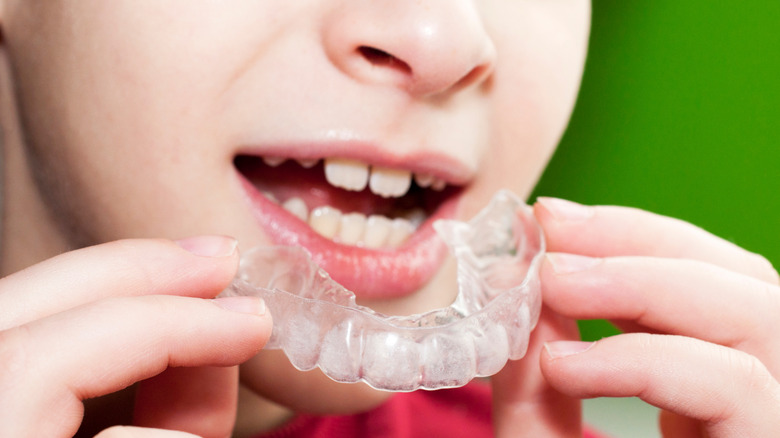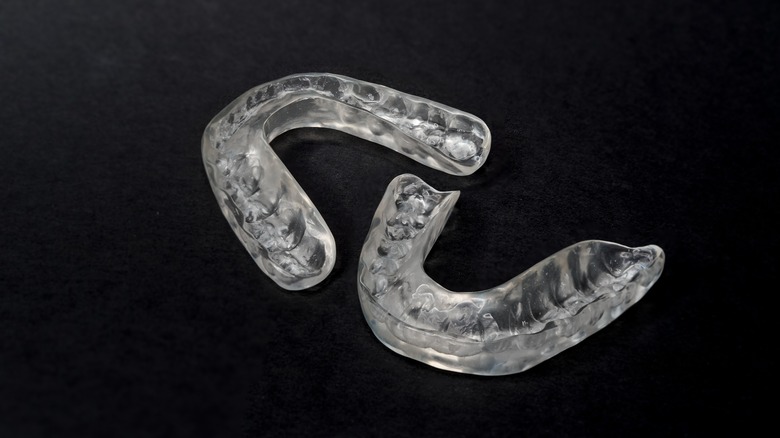Are Night Guards Safe For Children?
Have you ever woken up with a sore mouth or your teeth feeling extra sensitive? For some people with bruxism, this can be a regular occurrence. According to Johns Hopkins Medicine, bruxism is a condition in which someone unconsciously grinds or clenches their teeth when sleeping or sometimes even during the day. Those affected may notice chipped or cracked teeth, headaches, or popping sensations in their temporomandibular joint (TMJ). Some might not notice any symptoms at all.
Why might some people experience bruxism? As explained by the U.K. National Health Service (NHS), feelings of stress and anxiety can contribute to teeth grinding and clenching. Some selective serotonin reuptake inhibitors (SSRIs), medications typically used to treat depression and other mental health disorders, could also play a part in bruxism in some cases, according to a 2018 article published in Neurology Clinical Practice.
Mouth guards are a popular treatment option. Mouth guards are used to protect the teeth when someone is clenching and grinding, and there are different types (per Cleveland Clinic). By taking a mold of your teeth, a dentist can make a custom mouth guard for you. This is the safest and most effective option. Alternatively, you could use the boil-and-bite method, which can be achieved at home. Other adjustable mouth guards can also be purchased over the counter.
As noted by the Children's Hospital of Philadelphia, approximately 3 out of 10 children grind their teeth by the age of 5. Mouth guards are the go-to treatment for bruxism, but are they safe for children?
Are mouth guards recommended for children?
While children are susceptible to bruxism, they may experience it differently than adults, so should they receive the same treatment as adults? Children can experience bruxism for reasons other than stress. Potential causes include misaligned teeth, earaches, and allergies, according to Warr Pediatric Dental Associates.
As it turns out, most dentists won't immediately recommend mouth guards unless the child is at risk for infection or permanent damage to the teeth due to bruxism, as explained by Frisco Kid's Dentistry. Children's mouths are still developing and changing, so molding a mouth guard may be more difficult for children than it is for adults. Furthermore, wearing a mouth guard could affect the alignment of new teeth, notes Warr Pediatric Dental Associates.
In these cases, instead of prescribing a mouth guard, a dentist may suggest smoothing out the affected teeth or scheduling regular checkups for the child. They may also encourage the parents of a child with bruxism to receive a psychological evaluation with a mental health professional, and to provide a supportive environment for the child to express and process their feelings.
Although some dentists may be hesitant at first to prescribe children night guards for bruxism, Dentistry for Children explains that children should wear mouth guards anytime they participate in recreational activities or sports, including football, soccer, and skateboarding.
In any case, if your child struggles with bruxism, you should consult with your dentist to determine the best treatment option for them.


